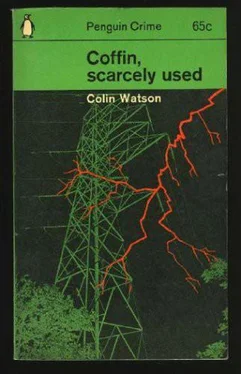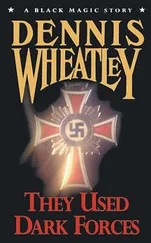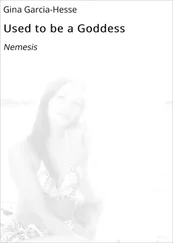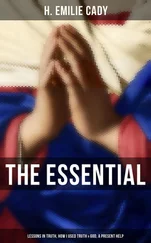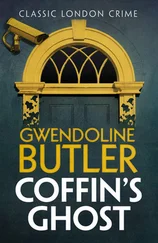Mr Chubb looked shocked. Love, too, seemed taken aback—but rather in the manner of a schoolboy who succeeds in getting two packets of cigarettes from a kicked slot machine instead of one.
“Well, you know best what lines to work along, Purbright,” said Mr Chubb, “but do try and keep a charitable view of these people. Until you know the worst, of course. I don’t believe in sentiment where criminals are concerned. But background counts for a lot with me. Chaps don’t usually go off the rails overnight after years and years of being useful and respectable citizens.”
Purbright looked up from his papers and smiled. “No, sir,” he said. “Some of them are off the rails all the time but manage to keep the fact to themselves.”
The telephone on the desk rang. “Take it at the switch, will you, sergeant,” Purbright said to Love, “and tell whoever it is I’m engaged.”
“Don’t mind me, my boy,” Mr Chubb protested, but Love was already through the door and the bell did not ring again.
A few moments later, the sergeant came hurrying back into the office. His cherubic composure looked strained. “Excuse me—sir.” he said carefully to Purbright, “but perhaps you ought to know straight away. That was Mrs Gloss on the phone. The solicitor’s wife. She says Mr Gloss is dead. Someone took a stab at him as he was coming into his house a little while ago. That is what she alleges—sir.”
Purbright looked at the Chief Constable. “It shortens the list of suspects, anyway,” he said.
Chapter Fourteen
“But look here, doctor, surely you have some inkling? How big was the fellow? Which way did he go?”
Mr Chubb, interrogator, was finding Dr Hillyard’s granite imperturbability very difficult to scratch.
“I tell you I didn’t even see him. There was just a”—he carved the air with one of his long, oar-like hands—“a dark shape right under our noses, then Gloss seemed to lift. He gave a sort of squeak, that’s all, and went down outside the gate, there. Plonk. And I knelt down to see what was wrong. Aye.”
The sitting-room of the house in St Anne’s Place gave the impression of being somewhat crowded, as rooms do when they contain men wearing overcoats. Actually there was no lack of space for the five people who occupied it, although one of them, the so lately late Mr Rodney Gloss, silently monopolized the whole of the large chesterfield in its centre.
Dr Hillyard sat forward in an armchair, staring morosely at the sheet that covered the solicitor’s body. He stressed bony fingers in a consultative pyramid. The presence of three policemen appeared to distress him not at all.
Love was busy folding a jacket and a dark overcoat, the darker stain on which he carefully left uppermost when he placed it with other clothing on a stool.
Purbright sat on a chair arm near the window. His mop of yellow hair glinted against the background of grey velvet curtains. He watched Hillyard’s face with an expression that suggested kindly absent-mindedness.
From his instinctively adopted post near the fireplace, the Chief Constable threw out another question. He sounded a fraction peeved and incredulous.
“You say this assailant made no sound whatever, doctor? Said nothing?”
“Nothing.”
“Not a word to either of you?”
“He didn’t ask to be introduced, if that’s what you mean.”
“That is not what I mean, doctor,” said Mr Chubb coldly. “It simply seems extremely odd that murder is committed in a residential area of Flaxborough with the technique, as it were, of an oriental assassin.”
Hillyard made no reply.
Purbright asked him gently: “How do you account for the blood on your own clothing, sir?”
“See if you can turn over a man with a heart wound and stay clean,” retorted the doctor.
The inspector nodded as if satisfied. “What sort of a blow would you say had been used? Powerful, of course?”
“Quite powerful. A deal of cloth had to be penetrated.”
“And a body.”
“Aye—that too.”
Purbright stood up and stepped over to the walnut table near the Chief Constable. He bent and examined, without touching, the long knife that lay there on a sheet of brown paper.
“It would be no use asking if you had seen this before?”
“No use whatever,” confirmed Hillyard.
Purbright went back to his perch. “When and where did you meet Mr Gloss this evening, doctor?”
“He called shortly after surgery. About nine, I should guess. We talked awhile over a whisky or two.”
“It wasn’t a professional call?” put in the Chief Constable.
“From what aspect, may I ask? Medical or legal?”
“Either.”
“No.”
“Would you care to tell us what object Mr Gloss had in calling to see you, sir?” Purbright sounded less insistent than Mr Chubb.
“His objects, I suppose, were exercise, liquor and conversation, in that order. He achieved all three in moderation. I might add—in case misleading theories are burgeoning in your mind, inspector—that our talk was innocent, trivial and unsuggestive of violence.”
“How long did he remain at your home?”
“An hour, maybe. We left say twenty minutes before his wife called you on the telephone.”
“And walked directly here?”
“Directly. But in no haste.”
“Why did you accompany him, sir? It’s not a particularly pleasant night for walking.”
“Is it not? I hadn’t noticed.”
“By the way, doctor, did you have a fairly busy surgery this evening?”
Love looked quickly at Hillyard, who replied: “My surgery is always busy. Disease is like crime, inspector: there is a constant concentration of it in society everywhere.”
“Both will respond to treatment, though?”
“Aye—to a strictly limited degree.”
“Yet perseverance is still worth while. Is that why you provide special clinical facilities at your house, Dr Hillyard?” Purbright’s expression was one of earnest encouragement.
“Is that point...ah”—Hillyard grappled for a word—“germaine—aye, germaine—to your inquiries, inspector? Tell me that, will ye?” The emergence of the accent put sardonic challenge into the words. He held his head forward and askew, like a bird’s.
Purbright let the retort go by. “You were acquainted, I believe, doctor, with the late Mr Gwill?”
“I was.”
“And with the late Mr Carobleat, who lived next door to him?”
“I have been acquainted in my time with many citizens now deceased, inspector. As a doctor, I doubt if I am unique in that respect.”
“I don’t suppose you are. But it is possible that your special knowledge might help us to dispose of some rather odd coincidences and the sort of rumours that always follow them and hamper us in our work.”
Dr Hillyard spread out his hands and smiled wryly.
“You attended Mr Carobleat—we might as well proceed in chronological order—and signed a death certificate in respect of pneumonia and heart failure. That is so, doctor?”
“To the best of my recollection.”
“The illness was quite short?”
“Short—but conclusive.”
“And you have no reason, looking back now, to doubt the accuracy of your findings?”
“None whatever. Why should I?”
“What is your opinion, doctor, concerning the death of Mr Gwill?”
Hillyard shook his head. “I have no knowledge of that. I’m sure your own police surgeon could give you more help than I can.”
“I wouldn’t say that, sir. After all, you were in Mr Gwill’s company until very shortly before he died.”
Hillyard regarded Purbright narrowly for a few seconds. Then he said: “I suppose you are indebted—posthumously”—he glanced at the sheeted form in the centre of the room—“to Gloss for that information?”
Читать дальше
